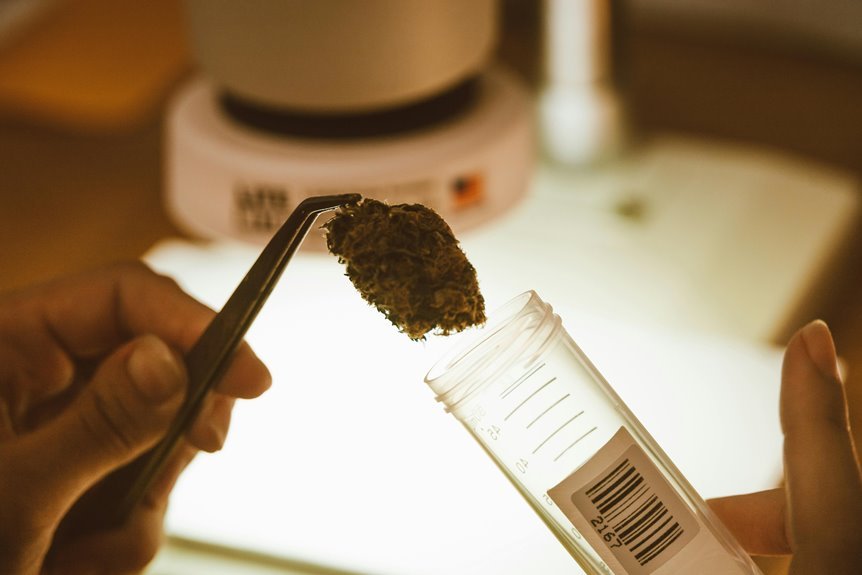Does Cbd Show up in Urine Test

The question of whether CBD shows up in a urine test is complex. While CBD itself is not typically detected in standard tests, full-spectrum products may contain THC, which can lead to a positive result. Various factors, such as dosage and individual metabolism, also play a significant role. Understanding these nuances is crucial for users concerned about potential testing outcomes. What should consumers consider when selecting CBD products to minimize risks?
Understanding CBD and Its Composition
Cannabidiol, commonly known as CBD, is a compound derived from the cannabis plant. It is celebrated for its potential health benefits, such as reducing anxiety and alleviating pain.
CBD is sourced from various parts of the cannabis plant, particularly the flowers and leaves. Its growing popularity has led to increased availability in oils, edibles, and topical products, catering to diverse user preferences.
How CBD Metabolizes in the Body
When consumed, CBD undergoes a complex metabolic process within the body that involves several stages.
Initially, CBD absorption rates vary based on the method of consumption, affecting its bioavailability.
Once absorbed, it is metabolized primarily in the liver through various enzymes.
Subsequently, CBD elimination pathways facilitate its excretion, primarily through urine and feces, ultimately influencing its detection in drug tests.
Factors Influencing Urine Test Results
Various factors can significantly influence the results of urine tests for CBD, including the frequency of use, dosage, and the individual's metabolism.
Additionally, urine composition plays a crucial role in how CBD metabolites are detected.
Different testing methods may also yield varying results, further complicating the interpretation of findings.
Understanding these factors is essential for individuals concerned about CBD's presence in urine tests.
Choosing CBD Products Wisely
Selecting the right CBD product is crucial for consumers who wish to avoid potential complications in urine testing.
Careful CBD product selection involves scrutinizing product labeling for ingredient transparency and cannabinoid content. Full-spectrum products may contain THC, which can affect test results, while broad-spectrum and isolate options typically do not.
Awareness of these factors can empower consumers to make informed choices and maintain personal freedom.
Conclusion
In conclusion, while CBD itself typically escapes detection in standard urine tests, the presence of trace THC in full-spectrum products can turn the tide. Users must navigate this landscape with vigilance, selecting broad-spectrum or isolate options to safeguard against unwanted positive results. Ultimately, being informed is akin to wielding a compass in uncharted waters, guiding individuals toward choices that align with their health and wellness goals without the looming shadow of potential drug tests.






